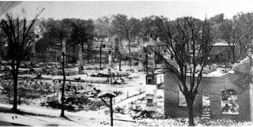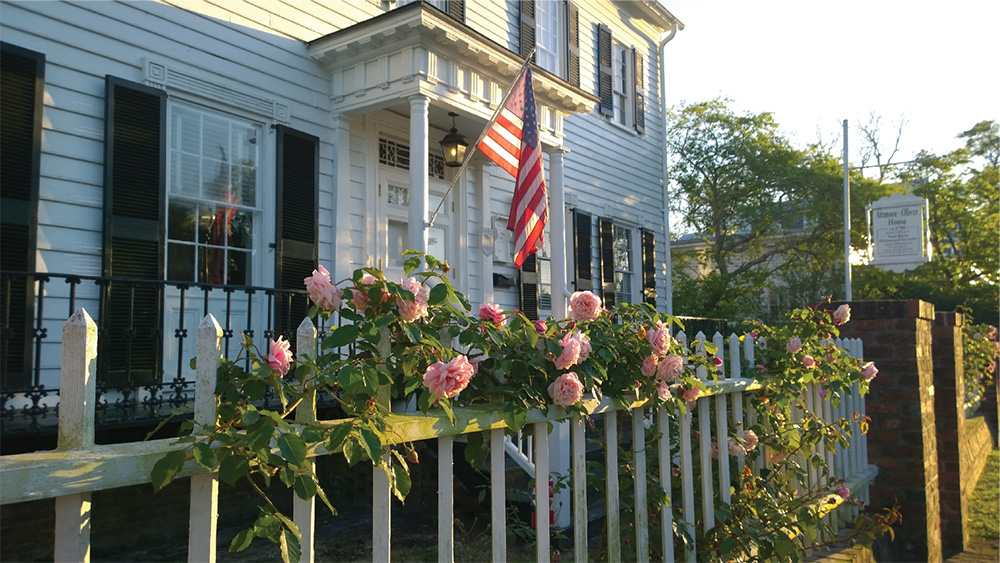 December 1, 1922 started out in anticipatory fashion as over 400 people from New Bern left for Raleigh to attend the Eastern Carolina Football Championship between New Bern and Sanford. By the end of the day, New Bern would suffer from the worst fire in North Carolina history, leaving 3,200 — one fourth of the population — homeless, a thousand buildings destroyed, hundreds of jobs lost and an area of forty blocks totally destroyed at an estimated loss of two and a half million dollars. It would hence forth be known as “The Great Fire.”
December 1, 1922 started out in anticipatory fashion as over 400 people from New Bern left for Raleigh to attend the Eastern Carolina Football Championship between New Bern and Sanford. By the end of the day, New Bern would suffer from the worst fire in North Carolina history, leaving 3,200 — one fourth of the population — homeless, a thousand buildings destroyed, hundreds of jobs lost and an area of forty blocks totally destroyed at an estimated loss of two and a half million dollars. It would hence forth be known as “The Great Fire.”
The morning of December 1 was cold and overcast with gale-like winds. At 8:00 a.m. a fire broke out at the Rowland Lumber Company, the largest sawmill in North Carolina. Every fireman and piece of equipment was sent to fight the blaze, but they had difficulty in controlling the flames sweeping through the dry lumber in the yard and were hampered by insufficient manpower due to the number of people who had left town for the game. At 10:45 a.m. a fire started in the chimney of a small house on Kilmarnock Street near the Five Point intersection in New Bern. By the time the firefighters responded, three more houses were burning out of control. The 70 miles per hour winds moved east towards the Neuse River. As the fire spread rapidly down to George Street the wind then spread the fire North and West. By midday, Fire Chief James K. Bryan, put out frantic calls to neighboring towns for help, and fearing that the entire town would be destroyed, decided to use dynamite to level the houses in the path of the inferno and to create a firebreak. Shortly before dusk, the wind shifted and died down and the fire was finally brought under control. Unbelievably, there was only one casualty, an elderly African American woman who was too crippled to escape her home.
That night, fire victims sought refuge in Cedar Grove and Greenwood Cemeteries and many had escaped with only the clothes on their back. Fort Bragg responded to a call for help by sending eight freight cars loaded with tents, cots, mattresses, and other needed equipment and officers and men arrived to oversee the erection of the tents which later became known as “Tent City.” Cots, blankets and clothing were sent by the Navy base at Norfolk and nearby towns immediately began collecting used clothing and money to help the homeless. The Red Cross moved in and was placed in full charge of the relief effort. West Street School, which miraculously escaped the fire, was opened to feed thousands of meals for the African Americans who were homeless. Local businesses and townspeople assisted in these endeavors.
The City decided to condemn about twenty acres of the burned area to widen and straighten the streets, to extend Cedar Grove Cemetery and to create a city park. There was much protest over this decision because most of the houses that had stood in the condemned area were owned by the African American families who had resided there. Today, Kafer Park, the cemetery extension, and the George Street Senior Center building are on this property.
In case you wanted to know, New Bern won the championship game, 6-0.
Photo of the Great Fire of 1922 Courtesy of the New Bern Fire Museum


